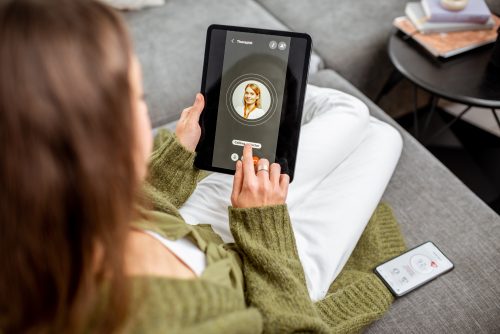Di Kerry Chamberlain, Massey University, Auckland, Nuova Zelanda
Come si comportano le persone con i farmaci quando tornano a casa? Sorprendentemente, pochi studi hanno tentato di rispondere a questa domanda. Tuttavia, è una questione importante – la maggior parte dei farmaci vengono assunti a casa sotto la diretta responsabilità del paziente. I farmaci da prescrizione sono regolati, ma una volta prescritti e ritirati si presume vengano assunti come da istruzioni. Le persone possono anche avere accesso e usare un’ampia gamma di farmaci da banco (ad esempio, per sollievo dal dolore), medicine alternative (ad esempio, preparazioni omeopatiche) e altri prodotti connessi alla salute che non sono propriamente farmaci (ad esempio, integratori alimentari, bevande probiotiche). Tuttavia, occorre considerare che l’accesso a tutte le forme di medicinali può variare considerevolmente tra Paesi.
I farmaci di qualunque tipo sono oggetti complessi connotati dal punto di vista sociale e sarebbe un errore considerarli semplicemente come tecnologie mediche, efficaci per curare o alleviare condizioni organiche quando assunte come prescritto. I farmaci hanno un’efficacia dose-risposta ampiamente variabile. Alcuni (ad esempio il paracetamolo) hanno un indice terapeutico ampio (vale a dire, sono rapidamente tollerati in un ampio intervallo di dosaggi) mentre altri (ad esempio, la levotiroxina) hanno un indice terapeutico ristretto (vale a dire, piccole differenze nel dosaggio possono portare a seri fallimenti terapeutici e/o gravi reazioni avverse). Inoltre, tutti i farmaci hanno effetti collaterali di qualche tipo, alcuni lievi e ignorati dalla maggior parte delle persone, altri più gravi e potenzialmente pericolosi. Se i farmaci possono avere effetti variabili, anche le persone stesse differiscono considerevolmente nella loro tolleranza e questa può cambiare nel tempo in seguito all’uso ripetuto della sostanza.

Esistono evidenze sostanziali del fatto che solo circa la metà dei farmaci prescritti sono presi come da istruzioni. Questo accade per svariate ragioni, incluso l’incorrere di effetti collaterali, preoccupazioni circa la dipendenza, credenze sulla malattia, sui farmaci e sui trattamenti. Perciò, è importante comprendere come le persone inesperte diano significato ai farmaci nella loro vita quotidiana. Abbiamo condotto uno studio con persone provenienti da 55 famiglie appositamente scelte da quattro città della Nuova Zelanda. Non eravamo interessati alla loro aderenza al trattamento farmacologico, ma abbiamo chiesto di discutere delle loro pratiche di cura, di mappare dove tenessero i medicinali di qualunque tipo nella loro casa e di parlare di tutti i farmaci che avevano nelle loro case.
Alcuni dei principali risultati di questa ricerca sono:
- Un’ampia varietà di farmaci di ogni tipo – sotto prescrizione, da banco e alternativi – era presente in tutte le case e distribuita capillarmente al loro interno. La loro collocazione era organizzata e differente per l’uso, con i farmaci condivisi conservati centralmente (cucine e soggiorni), i medicinali personali posizionati in spazi più privati (camere da letto, bagni) e farmaci più vecchi conservati in aree più periferiche (in credenze e mansarde). Questa collocazione dei farmaci rifletteva le relazioni familiari e le pratiche di cura nelle famiglie.
- Le persone concepivano e usavano i farmaci in modo molto differente, dalla resistenza all’uso fino a vari modi di assumerli, modificare o estendere il loro utilizzo, a seconda del tipo di medicinale e della malattia in questione.
` – Per esempio, alcuni erano molto restii circa l’assunzione di antibiotici: “Non mi piace prendere gli antibiotici… gli antibiotici dovrebbero essere conservati per le emergenze”.
`- Altri che assumevano farmaci psicotropi ne riducevano l’uso per via di effetti collaterali e dipendenze: “Volevo sentirmi e agire come un membro funzionante della società… per stare bene ho dovuto davvero abbandonare il farmaco”.
` – Le persone che usavano medicine alternative spesso mostravano una completa resistenza all’uso di farmaci allopatici: “Preferisco provare a vedere se passa o utilizzare qualunque altra alternativa piuttosto che prendere farmaci”.
` – Altri modificavano le dosi a seconda dei sintomi: “Mi hanno prescritto una dose più alta, ma ho deciso di provare a prenderne il meno possibile”.
- Queste pratiche farmacologiche quotidiane erano governate dalla concezione delle persone del valore e del ruolo dei farmaci nella società. I farmaci potevano produrre indisposizione quando il marketing e le storie dei media sollecitavano paura e ansia invocando “l’innaturale” e il fuori controllo, o potevano produrre ordine quando comprese come modo di fornire “equilibrio” e ripristinare ordine e controllo. I farmaci invocavano inoltre moralità quando visti come “male necessario” che richiede una vigilanza personale nel loro consumo o quando il loro consumo implicava persona malata “immorale” o un corpo stigmatizzato, creando identità che devono essere gestite.
Piuttosto che considerare le pratiche relative ai farmaci delle persone inesperte come male informate o irrazionali, sosteniamo che queste abbiano una propria logica, informata da una “farmacologia laica” dove le prospettive del paziente sui farmaci sono situate sia all’interno delle condizioni in cui sono stati prescritti i farmaci sia le loro narrazioni personali circa la salute. Questa capacità di farmacologia laica influenza e cambia le pratiche di aderenza al trattamento farmacologico nelle case in modi come quelli identificati sopra e fornisce una prospettiva mancante in molti approcci alla comprensione dell’assunzione dei farmaci.
I farmaci nelle case hanno una propria vita sociale
Raccomandazioni pratiche
- Gli psicologi della salute dovrebbero comprendere che l’assunzione di farmaci è una pratica sociale e approcciarla come tale, invece che vederla solamente dal punto di vista biomedico di aderenza al trattamento.
- L’uso dei farmaci può essere meglio compreso come situato all’interno di pratiche contestualizzate, in particolare all’interno delle pratiche temporali e spaziali domestiche che sono incorporate nella vita quotidiana. Gli psicologi della salute che intendono intervenire sull’assunzione di farmaci devono discutere e svelare queste pratiche e fornire consigli che siano connessi alle dinamiche sociali e contestuali che influenzano l’assunzione quotidiana dei farmaci per i pazienti.
- Gli psicologi della salute dovrebbero discutere dell’assunzione dei farmaci apertamente con i pazienti e tentare di fornire raccomandazioni in linea con la comprensione del paziente circa la propria malattia, del modo in cui vedono e valutano i farmaci e di come le pratiche di assunzione dei farmaci possono essere incorporate nella loro vita quotidiana.
[Traduzione a cura di Stefano Delbosq, Valentina Biscaldi e Michela Ghelfi]
